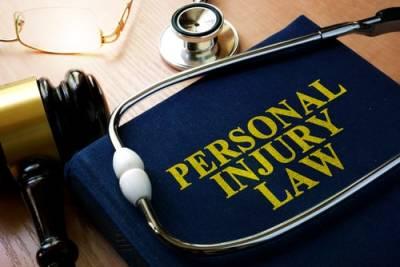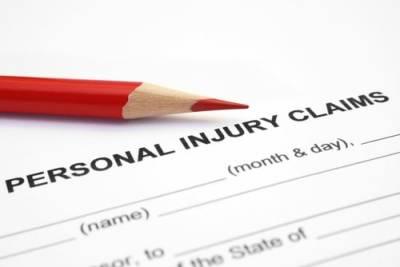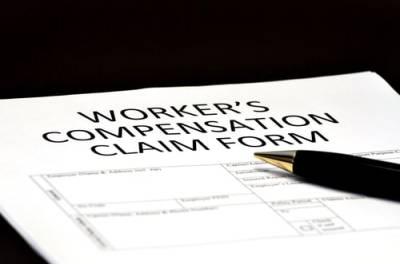Recent Blog Posts
Studies Show Road Rage is an Increasingly Common Cause of Accidents
 Almost everyone who has driven a motor vehicle has experienced frustration behind the wheel at some point. Responsible drivers understand that they cannot let feelings of anger or annoyance affect their driving. Unfortunately, not every driver has this level of self-control. Aggressive driving or road rage can be extremely dangerous. The National Highway Traffic Safety Association reports that fatal traffic accidents caused by road rage have increased by 500 percent.
Almost everyone who has driven a motor vehicle has experienced frustration behind the wheel at some point. Responsible drivers understand that they cannot let feelings of anger or annoyance affect their driving. Unfortunately, not every driver has this level of self-control. Aggressive driving or road rage can be extremely dangerous. The National Highway Traffic Safety Association reports that fatal traffic accidents caused by road rage have increased by 500 percent.
If you were injured or a loved one was killed in an accident caused by an aggressive driver, contact a car accident injury lawyer to take legal action.
Erratic, Dangerous Driving on the Rise
Between inflation, soaring gas prices, COVID-19, and everyday stressors, many people are experiencing high levels of anxiety and tension. This can lead some people to overact to traffic-related frustrations. They may speed, change lanes without signaling, run stop signals, tailgate, or even try and cut off other motorists in retribution for perceived wrongs. This type of aggressive driving is very dangerous, putting other drivers, passengers, pedestrians, and cyclists at risk. Frighteningly, experts say road rage is on the rise.
Is it Possible to Successfully Sue the Government for an Injury or Death?
 Personal injury law deals with injuries and deaths caused by negligence or wrongdoing. There are nearly countless ways that a party’s negligent behavior or wrongful actions can lead to an injury. Many personal injury claims involve car accidents and commercial truck accidents. Others involve injuries caused by defective products. Negligent design or maintenance of a property may also lead to injury claims.
Personal injury law deals with injuries and deaths caused by negligence or wrongdoing. There are nearly countless ways that a party’s negligent behavior or wrongful actions can lead to an injury. Many personal injury claims involve car accidents and commercial truck accidents. Others involve injuries caused by defective products. Negligent design or maintenance of a property may also lead to injury claims.
The at-fault party in most personal injury claims is an individual or private company. However, there are also instances in which the government is ultimately at fault for an injury or death. In this situation, is it possible to sue the government for negligence?
Injury Claims Involving the Government
It is possible to sue the government and recover damages for an injury, but doing so is an especially challenging feat. Claims against the government are subject to special rules and procedures. An injured person can bring a claim against the state of Illinois if his or her injury was caused by a state employee or agency. For example, if a state-owned government property contained a dangerous condition and someone was hurt while visiting the property, that person may be able to sue the state for damages. Similarly, if someone was hurt in a car crash caused by a state employee who was on the clock, the state may be responsible for the damages caused in the crash.
Legal Options After Being Injured in a Limousine Accident
 Six people were rushed to the emergency room after a limousine collided with an SUV on the South Side of Chicago on April 29, 2022. Fortunately, all of the crash victims survived. The accident serves as a reminder that car accidents can happen when we least expect it. Limousines are thought of as luxurious and safe, but car accidents involving limos can and do happen. In 2018, a tragic limousine crash caused by brake failure left 20 people dead. The owner of the Prestige Limousine was charged with negligent homicide after it was discovered that he knew about the brake problems and had received multiple warnings from the state to get the limo repaired before the deadly crash.
Six people were rushed to the emergency room after a limousine collided with an SUV on the South Side of Chicago on April 29, 2022. Fortunately, all of the crash victims survived. The accident serves as a reminder that car accidents can happen when we least expect it. Limousines are thought of as luxurious and safe, but car accidents involving limos can and do happen. In 2018, a tragic limousine crash caused by brake failure left 20 people dead. The owner of the Prestige Limousine was charged with negligent homicide after it was discovered that he knew about the brake problems and had received multiple warnings from the state to get the limo repaired before the deadly crash.
If you or a loved one were involved in a limousine collision, you may be able to hold the at-fault party accountable and recover monetary damages through a personal injury claim.
Crashes Involving Limos May Be Caused by Multiple Factors
Legal Options If You Were Hurt by a Driver Under the Influence of Marijuana
 Illinois has legalized the recreational use of marijuana for adults. However, this does not change the fact that marijuana is an intoxicating compound. Whether it is inhaled, eaten in the form of a marijuana edible, or consumed in another state, cannabis products have serious psychological effects.
Illinois has legalized the recreational use of marijuana for adults. However, this does not change the fact that marijuana is an intoxicating compound. Whether it is inhaled, eaten in the form of a marijuana edible, or consumed in another state, cannabis products have serious psychological effects.
The drug impairs concentration and memory, increases reaction time, and harms cognition. Consequently, it is very dangerous to drive while high on marijuana. If you or a loved one were hurt in a car crash caused by a driver under the influence of marijuana, you may be able to take legal action and recover damages.
Car Crashes Caused by Drugged Driving
Driving under the influence of cannabis is illegal for a reason. Intoxicated drivers are more likely to make mistakes that can lead to injury-causing and fatal accidents. They are also more likely to react slowly to a dangerous situation on the road such as a stalled vehicle or dropped truck cargo. If you or a loved one were hurt in an accident and you suspect that the driver was intoxicated by marijuana, do not hesitate to take legal action. Contact a personal injury lawyer experienced in car crash injuries who can help. You may be able to hold the driver accountable for the harm caused to you or your loved one. You may also be entitled to financial compensation for your damages. Past and future medical bills, vehicle repair or replacement costs, and lost wages from missed work during your recovery may all be compensable. You may also be entitled to compensation for the crash's non-financial consequences on you and your family, such as pain and suffering and lost quality of life.
Understanding Comparative Negligence in an Illinois Personal Injury Case
 Personal injury claims deal with legal responsibility for injuries caused by negligence or wrongdoing. Injured people may be harmed by the careless actions of a property owner, trucking company, distracted driver, manufacturing company, or numerous other parties.
Personal injury claims deal with legal responsibility for injuries caused by negligence or wrongdoing. Injured people may be harmed by the careless actions of a property owner, trucking company, distracted driver, manufacturing company, or numerous other parties.
Through a personal injury claim, an injured person may be entitled to financial reimbursement for economic and non-economic damages. However, many injured people assume that they cannot recover compensation through an injury claim because their actions may have contributed to their own injury. Fortunately, in Illinois, injured people may still be able to recover compensation even if they were partly at fault for the injurious accident.
Shared Fault Accidents and Personal Injury Claims
Consider the following scenario: A working mother only has a few minutes to quickly shop on her lunch break. She jogs from her vehicle to the store’s entrance, tripping on a broken slab of pavement in the parking lot. The woman falls and suffers a serious back injury that requires expensive medical care.
When is an Illinois Worker NOT Entitled to Reimbursement Through Workers’ Compensation?
 Regardless of the industry or profession, there is always a chance of getting hurt at work. Construction workers may fall from scaffolding and suffer a back injury. An office worker may develop carpal tunnel from typing all day. A server at a restaurant may slip and fall on spilled oil and suffer a head injury.
Regardless of the industry or profession, there is always a chance of getting hurt at work. Construction workers may fall from scaffolding and suffer a back injury. An office worker may develop carpal tunnel from typing all day. A server at a restaurant may slip and fall on spilled oil and suffer a head injury.
Workers who are injured during the course of employment are usually entitled to compensation through their employer’s workers’ compensation insurance. However, there are some instances in which a worker is not entitled to workers’ comp.
Reasons Someone May Not Be Able to Get Workers’ Comp
If you or a loved one were injured at work, you may have questions and concerns about workers’ compensation. You may wonder if workers are always entitled to financial compensation or if there are circumstances in which a worker cannot recover reimbursement through workers’ comp.
How Much Compensation Can I Get for Pain and Suffering?
 Illinois law gives injured people the right to seek financial compensation for their injury-related costs when an accident is caused by another party’s actions. In many cases, injured individuals are also entitled to compensation for the non-financial losses they suffered as a result of their injury. These losses are often referred to as “pain and suffering” damages. If you or a loved one were hurt in a car crash, fall, work accident, or another incident, read on to learn about how non-financial damages are calculated in Illinois personal injury cases.
Illinois law gives injured people the right to seek financial compensation for their injury-related costs when an accident is caused by another party’s actions. In many cases, injured individuals are also entitled to compensation for the non-financial losses they suffered as a result of their injury. These losses are often referred to as “pain and suffering” damages. If you or a loved one were hurt in a car crash, fall, work accident, or another incident, read on to learn about how non-financial damages are calculated in Illinois personal injury cases.
Understanding Economic and Non-Economic Damages in a Personal Injury Case
Economic damages are financial losses that a person experiences because of a personal injury. For example, a truck accident victim may be faced with a massive hospital bill and ongoing medical expenses for physical therapy and medication. He may be unable to work during his recovery and forced to deplete his paid time off days. His vehicle may be totaled or in need of significant repairs. Calculating the total cost of these financial losses is usually straightforward.
Lung Disease Sufferers May Be Entitled to Financial Compensation
 Our lungs give us life. Exposure to smoke, airborne chemicals, particulates, toxic fumes can severely damage the lungs and reduce a person’s ability to work. Respiratory illnesses and lung disease may be caused by work environments. Unfortunately, many people with respiratory illnesses caused by their jobs struggle to be taken seriously. Their symptoms are often blamed on allergies, pre-existing conditions, or other issues. If you or a loved one have developed lung problems because of your job, work with a skilled workers’ compensation lawyer.
Our lungs give us life. Exposure to smoke, airborne chemicals, particulates, toxic fumes can severely damage the lungs and reduce a person’s ability to work. Respiratory illnesses and lung disease may be caused by work environments. Unfortunately, many people with respiratory illnesses caused by their jobs struggle to be taken seriously. Their symptoms are often blamed on allergies, pre-existing conditions, or other issues. If you or a loved one have developed lung problems because of your job, work with a skilled workers’ compensation lawyer.
How Work Conditions Can Lead to Lung Disease
Acute or repetitive exposure to mineral dust, gases, vapors, or airborne pathogens can eventually lead to lung diseases or breathing problems. Lung cancer, bronchiectasis, silicosis, pulmonary disease, pneumonia, and asthma are just some of the issues a worker may suffer from due to his or her work conditions. Anyone can suffer from these illnesses, but workers in certain industries are more likely to suffer from occupational diseases affecting breathing. People who work in farming or manufacturing industries are often especially vulnerable to lung illnesses due to the chemicals and materials used in those industries. Laboratory workers, miners, firefighters, and individuals who work with animals may also be exposed to materials that can cause lung disease.
Victims of Violence May Have the Right to Sue for Damages in Illinois
 Over 1.3 million violent crimes were reported in the United States in the year 2020. Assault, battery, sexual assault, and other violent crimes can leave victims with physical and psychological injuries that dramatically impact their everyday lives. Sometimes, the perpetrators are brought to justice through the criminal courts. In other cases, perpetrators are able to avoid criminal culpability for their heinous actions. Regardless, criminal consequences like incarceration do not provide restitution to the victims. Many people who are injured in a violent attack are left unable to work and facing steep medical bills. Fortunately, victims of violence in this situation may be able to sue for monetary damages.
Over 1.3 million violent crimes were reported in the United States in the year 2020. Assault, battery, sexual assault, and other violent crimes can leave victims with physical and psychological injuries that dramatically impact their everyday lives. Sometimes, the perpetrators are brought to justice through the criminal courts. In other cases, perpetrators are able to avoid criminal culpability for their heinous actions. Regardless, criminal consequences like incarceration do not provide restitution to the victims. Many people who are injured in a violent attack are left unable to work and facing steep medical bills. Fortunately, victims of violence in this situation may be able to sue for monetary damages.
Premises Liability Lawsuits for Assault and Other Violent Crimes
If someone is assaulted or otherwise injured in an intentional act of violence, he or she may be able to seek justice through the civil court system. The victim may also be able to recover financial compensation for medical expenses, pain and suffering, and other damages. The at-fault party in cases like these varies. The victim may be able to the person who committed the violent crime. However, many perpetrators of violence do not have the financial means to pay damages so suing them may be a fruitless pursuit. In some cases, it is a better idea to sue the party who allowed the assault or other violent act to occur.
Legal Options for Police Officers Injured in the Line of Duty
 Every profession involves some risk of injury. However, some jobs are inherently more dangerous than others. The National Law Enforcement Memorial Fund reports that nearly 300 police officers died in the year 2020 alone. Police face dangers every day on the job in the form of motor vehicle accidents, altercations with suspects, and countless other incidents. Officers who are hurt on the job may be entitled to financial compensation through workers’ compensation or a third-party claim.
Every profession involves some risk of injury. However, some jobs are inherently more dangerous than others. The National Law Enforcement Memorial Fund reports that nearly 300 police officers died in the year 2020 alone. Police face dangers every day on the job in the form of motor vehicle accidents, altercations with suspects, and countless other incidents. Officers who are hurt on the job may be entitled to financial compensation through workers’ compensation or a third-party claim.
Workers’ Compensation for Law Enforcement Officers in Illinois
In Illinois, employers are required to carry workers’ compensation insurance. This insurance helps cover injury-related costs when a worker is hurt on the job. Injured police officers may be entitled to compensation for part of their lost income as well as medical bills. Medical expenses related to emergency room care, hospitalization, medication, and rehabilitative care may be covered by workers’ compensation. If a police officer suffers an injury that leaves him or her disabled, he or she may also be entitled to benefits through the Illinois Public Employee Disability Act.









